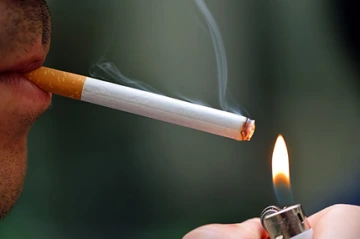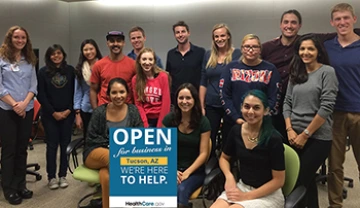University of Arizona Helping Reduce State Health Gaps
Every year, more than 1,500 deaths in Arizona could be avoided if all residents had an equal chance to be healthy.

Every year, more than 1,500 deaths in Arizona could be avoided if all residents had an equal chance to be healthy. That’s the startling conclusion of the Arizona Health Gaps Report released today by the Robert Wood Johnson Foundation’s County Health Rankings & Roadmaps program.
The report makes a county-by-county comparison of key quality-of-life and health factors and highlights how health would improve across Arizona if all residents experienced the same level of health as the residents of our healthiest counties. Among other things, the report envisions 69,000 fewer adult smokers, 84,000 fewer adults who are obese, and 90,000 fewer uninsured individuals.
Some of these numbers are staggering, and we clearly have a long road ahead to achieve health equity in Arizona. But as a researcher with the University of Arizona Health Sciences, I’m hopeful and proud to be part of a team that’s helping to forge a healthier Arizona. Here’s a snapshot of just a few of our efforts focused in the areas of tobacco, health insurance and diabetic screening that support communities in addressing these gaps and moving toward health equity:

The UA's Arizona Smokers Help Line (ASHLine) provides support to help Airzonans quit tobacco.
Dr. Marylyn McEwen at the UA College of Nursing is tackling diabetes disparities in the border region by partnering with families to understand how familismo, or the cultural value of family, can help Mexican-American adults manage their Type 2 diabetes. Because family members play an important role in many health decisions, focusing on familismo may help improve screening rates and health outcomes more than interventions that focus on individual behaviors or clinical care. This is just one example of how UA researchers are developing cultural interventions tailored to patients’ norms, beliefs, values, language, and health literacy skills to improve health.

Through SHARE (Students Helping Arizona Register Everyone), UA Health Sciences students are trained to help residents without health insurance find coverage.
These three projects are only a few examples of how the University of Arizona is already using the strategies suggested and working to reduce health gaps identified in the report. As the authors note, everyone should have an equal opportunity to be healthy, no matter where they live. At UA Health Sciences, we’re dedicated to achieving a vision of health equity for all Arizonans.
About the Author
Anne Roubal served as a research scientist at the University of Arizona Health Sciences where she helped write grants, develop issue briefs, and perform data analysis. Her primary research interests are measuring health disparities and translating health data into actionable policy initiatives. She earned her PhD in Population Health Sciences with a minor in Urban and Regional Planning from the University of Wisconsin-Madison. In 2016, she accepted a position with the University of Wisconsin Population Health Institute.

